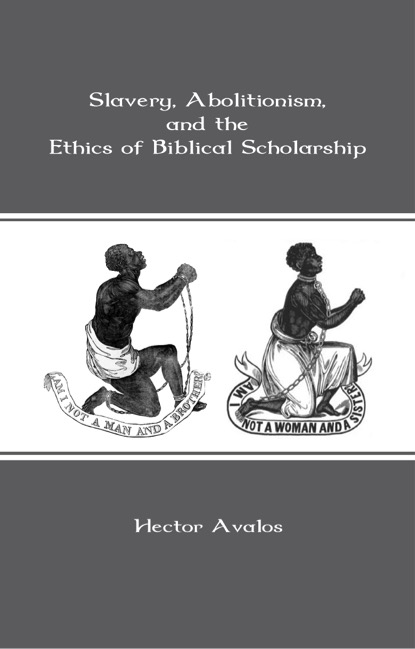Slavery, Abolitionism, and the Ethics of Biblical Scholarship
Price range: £25.00 through £90.00
In this immensely wide-ranging and fascinating study, Avalos critiques the common claim that the abolition of slavery was due in large part to the influence of biblical ethics.
In this immensely wide-ranging and fascinating study, Avalos critiques the common claim that the abolition of slavery was due in large part to the influence of biblical ethics. Such a claim, he argues, is characteristic of a broader phenomenon in biblical scholarship, which focuses on defending, rather than describing, the ethical norms encountered in biblical texts.
The first part of Avalos’s critique explores how modern scholars have praised the supposed superiority of biblical ethics at the cost of diminishing or ignoring many similar features in ancient Near Eastern cultures. These features include manumission, fixed terms of service, familial rights, and egalitarian critiques of slavery. At the same time, modern scholarship has used the standard tools of biblical exegesis in order to minimize the ethically negative implications of many biblical references to slavery.
The second part of the book concentrates on how the Bible has been used throughout Christian history both to maintain and to extend slavery. In particular, Avalos offers detailed studies of papal documents used to defend the Church’s stance on slavery. Discussions of Gregory of Nyssa, Aquinas and Luther, among others, show that they are not such champions of freedom as they are often portrayed.
Avalos’s close readings of the writings of major abolitionists such as Granville Sharp, William Wilberforce and Frederick Douglass show an increasing shift away from using the Bible as a support for abolitionism. Biblical scholars have rarely recognized that pro-slavery advocates could use the Bible just as effectively. According to Avalos, one of the complex mix of factors leading to abolition was the abandonment of the Bible as an ethical authority. The case of the biblical attitude to slavery is just one confirmation of how unsuitable the Bible is as a manual of ethics in the modern world.
Additional information
| table of contents | 1. Introduction Defining Slavery Biblical Scholars and Slavery The Historiography of Abolition Ethics and the New Atheism PART I. SLAVERY AND BIBLICAL SCHOLARSHIP 2. Unethical Hermeneutics Representativism Trajectorialism Reinterpretation: Does Original Intent Matter? Communitarian/Analogical Reinterpretations 3. Near Eastern Ethics and Slavery Mesopotamian Beginnings Egypt and Divine Care for Humanity Hittites and Lex talionis Greece and the Bonds of Freedom Rome: Home of Slavery and Freedom The Imago Dei and Universal Inequality 4. Slavery in the Hebrew Bible/Old Testament Lexicographers as Apologists Genesis 1:26: Let Dominion Begin Genesis 3:16 and Female Subjugation Genesis 9:19-27 and Noah’s Curse Genesis 16: Rape of a Slave Woman? Genesis 17:12 and Genital Mutilation Genesis 17:23: Abraham, the Blessed Slavemaster Exodus 1-15: A Liberationist Paradigm? Exodus 20:10 / Deuteronomy 5:12-15 and the Sabbath Exodus 21:1-6 and Term Limits Exodus 21:16 and “Manstealing” Exodus 21:20: Killing Slaves Exodus 21:26-27: Beating Manumission Leviticus 25:42: Who’s your Master? Leviticus 25:35-43: Jubilee Manumission Leviticus 25:44-46: Enslaving Outsiders Deuteronomy 15 and Inner Biblical Progress Deuteronomy 23:15: Fugitive Slaves 1 Samuel 8: Exclusive Service to Yahweh? Ezra 2:64-65 and Slave Societies Job 31:13-15 and Justice for Slaves Joel 2:28-29: Possessing Slaves 5. Slavery in the New Testament Matthew 7:12: The Golden Rule Acts 17:26 and Human Unity 1 Corinthians 7:21: Better to Remain in Slavery? Galatians 3:28: A Magna Carta of Humanity? Galatians 4:7: No Longer Slaves? Ephesians 6:5: Obedience through Terror Philippians 2:4-6: Slavery as Human Destiny Colossians 3:18-4:1: The Magic of Socio-Rhetorical Criticism 1 Timothy 1:10: Manstealing 1 Timothy 6: Honoring Christian Slavemasters Philemon: What Are You Insinuating? Why Was the New Testament Not More Vocal? 6. Christ as Imperial Slavemaster Imperial Political Rhetoric 101 Christ as Emperor Christ as Slavemaster Jesus and God’s Plantation Christ and the Least of my Brethren Christ, the Torture Master Are Believers Friends of Slaves? PART II: SLAVERY AND THE BIBLE IN CHRISTIAN HISTORY 7. Slavery in Late Antiquity Church Doctrine Major Theologians Clerical and Papal Acceptance Gregory of Nyssa St Bathilde and St Anskar 8. St Thomas Aquinas: A Medieval Abolitionist? 9. Renaissance Popes and Slavery: A Whole Lot of Bulls Sicut Dudum (1435) Romanus Pontifex (1454/55) Inter Caetera and Eximiae Devotionis (1493) Ineffabilis et Summi Patris (1497) Sublimis Deus (1537) Do As I Say, Not as I Do Summary 10. A Brave New World: Las Casas vs. Sepulveda 11. The Sixteenth Century: Protestants Unbound? Martin Luther: To Hell with Equality John Calvin: I Do Mean Slaves Jean Bodin, the Pragmatist 12. Catholicism, Protestantism, and Louisiana Slavery The Catholic Codes Is Baptism a Sign of Humanity? Was the Spanish Black Code Better? Ursuline Nuns 13. British Abolitionists James Ramsay Granville Sharp Thomas Clarkson Quobnah Ottobah Cugoano William Wilberforce 14. American White Abolitionists John Woolman: A Quaker Hero George Bourne: A Singular Scholar 15. African American Abolitionists David Walker: Egypt Was Better Frederick Douglass: A Secular Humanist? 16. Explaining Abolition Why Stark’s Thesis is Wrong Economics: Money Matters Non-Christian Abolition: Haiti Demographic Imbalances Secularization The Decline of Biblical Authority 17. Conclusion |
|---|


Reviews
There are no reviews yet.